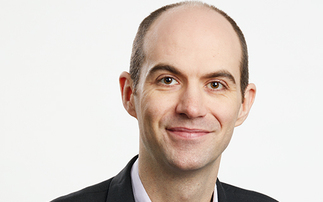
Clockwise from top left: SPP DB committee chair Jon Forsyth, LCP partner Steve Hodder, Barnett Waddingham partner Ian Mills and WTW director David Robbins
The government will enable well-funded defined benefit (DB) pension schemes to pay surplus funds directly to scheme members over the normal minimum pension age, where scheme rules and trustees permit it, from April 2027.
The government's policy document published following the Budget yesterday (26 November) said it would build on surplus reforms to unlock scheme surplus by reducing the tax charge on surplus funds paid directly to members.
It said this would make it easier for members to benefit and for trustees and employers to agree surplus extraction, "boosting investment across the economy".
The Society of Pension Professionals (SPP) is among the organisations that have called for such a move – most recently in its November 2025 paper on pre-1997 indexation, Government policy or scheme discretion?, which concluded that "[the SPP] would encourage policymakers to focus on … legislative change to permit one off discretionary payments to members instead of requiring longer term commitments".
The SPP paper explained these changes are likely to have benefits for members, as it will make increases more likely and they are likely to value a lump sum more than a pension increase. It said employers would also benefit as it gives certainty of cost associated with a decision. It added the government may also benefit in terms of increased tax take.
SPP DB committee chair Jon Forsyth said: "The SPP is pleased to see that the government has committed to reduce the tax charge on DB surplus funds paid directly to members over the normal minimum pension age. As we made clear in our recent paper on the subject, this has various potential benefits for members and sponsors and we think this additional flexibility will really enhance negotiations on the use of DB surpluses."
Christmas bonuses for members?
LCP said that, currently, most DB schemes looking to share surplus with members provide additional increases to pensions – something it said was "off-putting" for some sponsors, as it added to the level of DB risk they underwrite.
It said a move to allow schemes to pay simple additional lump sums to pensioners, without current penal tax charges, is expected to make it easier for many large schemes to share DB surpluses with members.
LCP partner Steve Hodder said: "This is great news, and confirms the government's continued commitment to helping well-funded DB schemes better support their members, sponsors and the wider UK.
"Creating a culture of routine 'Christmas surplus bonuses' removes one remaining hindrance from company sponsors sharing surpluses, and is likely more highly-valued by many members."
WTW director David Robbins agreed the move was a positive step.
He said: "Most DB schemes are now in surplus. One stumbling block to trustees and employers agreeing surplus sharing agreements has been that employers would prefer to make a one-off lump sum payment to members than to commit to higher pensions every year, but these carry tax penalties.
"The Budget announcing that direct payments to members over normal minimum pension age will become ‘authorised' from 2027 is a positive step, which WTW called for in a 2023 paper."
Robbins added: "This is also the first fiscal event since the Pension Schemes Bill proposed making it easier for schemes to make payments to employers where they will remain very well-funded.
"The Budget assumes that these measures will together generate £120m to £145m in each year between 2027/28 and 2030/31. That implies a low level of surplus release, in the hundreds of millions rather than the billions annually – if more is released, revenues could be higher."
Barnett Waddingham partner Ian Mills added the amendment "may now encourage more schemes to run-on".
He said: "Perhaps most importantly, it gives companies another option beyond increasing pension liabilities - something that most are actively trying to avoid to minimise their DB pension risk.
"Running-on is typically most appealing when most liabilities are still active, so the absence of a mechanism to share surplus with younger members is a missed opportunity. With the government estimating up to £160bn of surpluses in scope, getting these reforms right will really matter."








